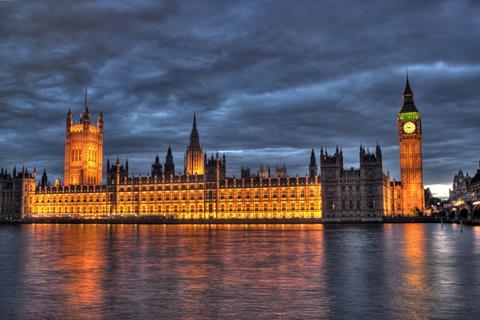
Today (March 28), the UK government is unveiling a £150m ‘sector deal’ designed to boost the country’s creative industries.
The deal is a part of the government’s Industrial Strategy, its long-term plan to increase the productivity and earning power of people throughout the UK.
The sector deal for the creative industries follows similar deals announced for the life sciences, automotive, construction and artificial intelligence sectors.
Spending plans
Of the £150m, which is comprised of government and industry investment, a total of £72m will come from the Industrial Strategy Challenge Fund, £39m of which will be invested by the Arts and Humanities Research Council in eight “creative research and development partnerships across Britain”.
The remaining £33m will be invested in immersive technology products, services and experiences, including new uses of virtual reality in video games, interactive art show and tourism. The government will also support the UK’s video games industry with an additional £1.5m in funding over the next two years to the UK Games Fund.
Further initiatives include a Cultural Development Fund, to be administered by Arts Council England, that will allow cities and towns to bid for a share of £20m to invest in creative and cultural initiatives, and an extra £2m in backing to the ‘Get It Right’ campaign, which tackles online piracy and educates consumers on the value of copyright.
In the training sphere, a further £2m will be made available to fund industry-led skills packages, including a creative careers programme the government says will be able to reach at least 2,000 schools and 600,000 pupils.
Finally, a new creative industries Trade and Investment board, comprising both industry and government, is being set up to replace the current Sector Advisory Group.
Brexit questions
As Screen reported yesterday, the UK’s screen sectors received £300m in EU funding in the last decade. At present, it’s not yet clear to what degree this funding will be impacted by the country’s exit from the European Union. The UK will remain in Creative Europe (and its MEDIA programme) until at least 2020 according to Suella Fernandes MP.
Whether the sector deal will need to plug any funding gaps from Brexit, or will purely be in addition to Creative Europe money, is yet to be determined.
Unveiling the sector deal, secretary of state for digital, culture, media and sport, Matt Hancock, said: “Britain’s creative industries are an economic and cultural powerhouse and this ambitious deal will make sure they continue to thrive as we build a Britain fit for the future.
“Our creative industries will help develop the talent of the future, ensure people are rightly rewarded for their creative content and give our firms the support they need to compete on the global stage. Millions of people around the world enjoy our world-class artistic and cultural output and we want Britain to stay a frontrunner in these vibrant sectors.”
Business secretary Greg Clark added: “The Industrial Strategy is all about building on our existing strengths and seizing the opportunities of the future. Our creative industries have been, for centuries, world renowned and at the forefront of innovation. That’s why I was determined to place the creative industries at the heart of our Industrial Strategy.
“The deal is evidence of our continued commitment to our world leading creative sector, establishing a partnership that can build on the UK’s position and reputation as one the most creative places on earth.”
Josh Berger, president and managing director Warner Bros UK, Ireland & Spain and chair of the British Film Institute added: “Incredible crews, fantastic facilities and the government’s direct and continuing support for the creative industries, including now their formal inclusion in the industrial strategy, continue to make our experience here such a positive one and underpin our ongoing investment in the UK.”

























No comments yet